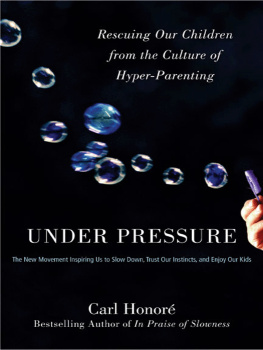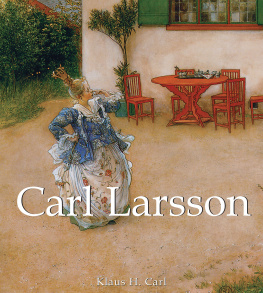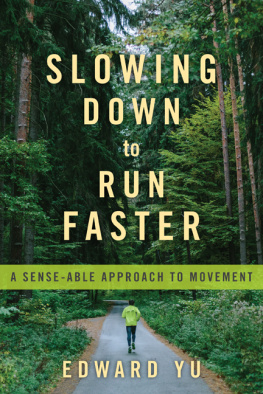For fast-acting relief from stress, try slowing down.
Lily Tomlin, American actress and comedienne
W agrain, a resort town nestled deep in the Austrian Alps, moves at a slow pace. People come here to escape the hurly-burly of Salzburg and Vienna. In the summer, they hike the wooded trails and picnic beside mountain streams. When the snow falls, they ski through the forests, or down the steep, powdery slopes. Whatever the season, the Alpine air fills the lungs with the promise of a good nights sleep back in the chalet.
Once a year, though, this small town does more than just live at a slow pace. It becomes a launch pad for the Slow philosophy. Every October, Wagrain hosts the annual conference of the Society for the Deceleration of Time.
Based in the Austrian city of Klagenfurt, and boasting a membership that stretches across central Europe, the Society is a leader in the Slow movement. Its more than one thousand members are foot soldiers in the war against the cult of doing everything faster. In daily life, that means slowing down when it makes sense to do so. If a Society member is a doctor, he might insist on taking more time to chat to his patients. A management consultant could refuse to answer work calls on the weekend. A designer might cycle to meetings instead of driving. The Decelerators use a German word eigenzeit to sum up their creed. Eigen means own and zeit means time. In other words, every living being, event, process or object has its own inherent time or pace, its own tempo giusto.
As well as publishing earnest papers on mans relationship with time, the Society stirs up debate with tongue-in-cheek publicity stunts. Members patrol city centres wearing sandwich boards emblazoned with the slogan Please hurry up! Not long ago, the Society called on the International Olympic Committee to award gold medals to the athletes with the slowest times.
Belonging to the Slow movement does not mean that you must always be slowwe take planes, too!or that you must always be very serious and very philosophical, or that you want to spoil everybody elses fun, says Michaela Schmoczer, the Societys very efficient secretary. Seriousness is okay, but you dont need to lose the humour.
With that in mind, the Decelerators regularly run speed traps in town centres. Using a stopwatch, they time pedestrians going about their daily business. People caught covering 50 metres in less than thirty-seven seconds are pulled over and asked to explain their haste. Their punishment is to walk the same 50 metres while steering a complicated turtle marionette along the pavement. It is always a huge success, says Jurgen Adam, a schoolteacher who ran a speed trap in the German city of Ulm. Most people have not even thought about why they are going so fast. But once we get them talking about speed and time, they are very interested. They like the idea of slowing down. Some even return later in the day asking to walk the turtle a second time. They find it so soothing.
At the Societys annual conference in 2002, seventy members from Germany, Austria and Switzerland descended on Wagrain to spend three days putting the world to rights over wine and Wiener schnitzel. Dress is casual, as is the timekeeping. A slogan pinned up in the main meeting room speaks volumes: The beginning is when the time is right. Translation: Many of the workshops start late. Thanks to a printing slip-up, a whole thirty-minute slot is missing from the Saturday program. When I point out the anomaly to a delegate, he looks perplexed. Then he shrugs, smiles and says: Oh well. Easy come, easy go.
Dont get the wrong idea. The Decelerators are not flaky relics from the hippie era. Far from it. They are the kind of concerned citizens you find at neighbourhood watch meetings around the worldlawyers, consultants, doctors, architects, teachers. Nevertheless, the conference does occasionally tip into farce. At one workshop, held in a hotel lobby, two shaggy philosophy students lead a discussion about the art of doing absolutely nothing. A dozen members convene about ten minutes after the official start time. They sit without speaking, shifting uncomfortably in their fold-up chairs. Only the distant whir of a vacuum cleaner, echoing up a nearby stairwell, disturbs the silence.
Elsewhere in the hotel, though, others explore more pragmatic ways of slowing down. One entrepreneur gives a workshop on his blueprint for the worlds first Slow hotel. Most vacations are so stressful nowadays, explains Bernhard Wallmann, a large, middle-aged man with puppy-dog eyes. It starts with the journey by plane or car, then you rush around seeing as many sights as possible. You check your email in an Internet caf, you watch CNN or MTV on the hotel television. You use your mobile to check in with friends or colleagues back home. And then at the end you return more tired than when you left. Tucked away in an Austrian national park, his three-hundred-bed Slow Hotel will be different. Guests will travel to a nearby village by steam train, and then on to the hotel by foot or in a horse-drawn carriage. All hurry-inducing technologytelevisions, cellphones, laptops, PalmPilots, carswill be banned. Instead, guests will enjoy simple, Slow pleasures such as gardening, hiking, reading, yoga and spa treatments. Guest speakers will come to talk about time, speed and slowness. As Wallmann lays out his vision, some of the Decelerators balk. Its too big, too elitist, too commercial, they cry. But Wallmann, who wears the polished black shoes of a man who means business, is undeterred. There is a great hunger for slowness in the world now, he tells me later, between mouthfuls of apple strudel. I think the time is right for a hotel that really lets people slow down in every way.
Opting out of the culture of speed involves a leap of faithand it is always easier to leap when you know others are leaping, too. Erwin Heller, a property lawyer from Munich, tells me that meeting other members of the Society for the Deceleration of Time helped him take the plunge. I felt that the constant acceleration of everything was bad, but when you are alone, you always suspect that you might be wrong, and that everybody else is right, he says. Knowing there are many other people thinking the same way, and even acting on it, has given me the confidence to slow down.
The Society members are not alone. Around the world, people are banding together into pro-Slow groups. More than seven hundred Japanese people now belong to the Sloth Club, which advocates less hurried, more environmentally friendly living. The group runs a caf in Tokyo that serves organic food, stages candlelight concerts and sells T-shirts and coffee mugs bearing the slogan Slow is beautiful. Tables are deliberately spaced farther apart than is normal in Japan, to encourage people to relax and linger. Thanks in part to the Sloth Club, deceleration is now hip in Japan. The nations advertisers use the English word slow to sell everything from cigarettes and holidays to apartment blocks. Admiration for the easygoing lifestyle of Mediterranean Europe is so widespread that one commentator talks of the Latinization of the Japanese people.
In 2001, one of the Sloth Clubs founders, an anthropologist and environmental activist named Keibo Oiwa, published a survey of the various campaigns for slowness around the world. The book was called Slow Is Beautiful, and is already into its twelfth print run. When I visit Oiwa at his office at the Meiji Gakuin University outside Tokyo, he is just back from a well-attended three-day workshop on slowness held by the Hyogo prefecture. More and more people in Japan, especially young people, are realizing that it is okay to be slow, he says. For us that represents a total sea change in attitudes.










